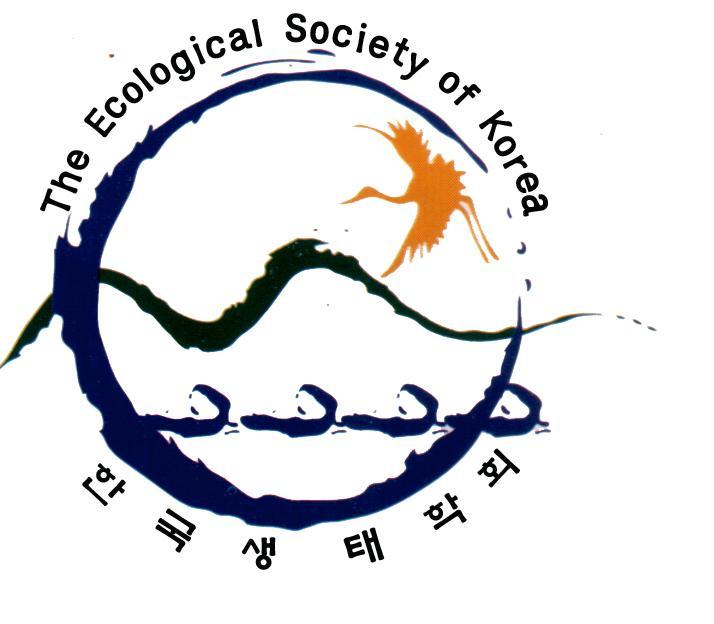- ENGLISH
- P-ISSN2287-8327
- E-ISSN2288-1220
- SCOPUS, KCI
 ISSN : 2287-8327
ISSN : 2287-8327
First report of interspecific facultative social parasitism by Polistes sp. on Polistes djakonovi Kostylev (Hymenoptera: Vespidae) in South Korea
권오석 (경북대학교)
Abstract
Social parasitism is occasionally found in some Polistes and Vespa species, such as Vespa dybowskii. We report a discovey of interspecific facultative social parasitism by Polistes sp. (possibly P. mandarinus) on Polistes djakonovi Kostylev in two rural areas of South Korea. P. djakonovi is very similar to Polistes sp. in its body color patterns except that the mark on the clypeus is different. In nest 1 (65 cells), we found 5 females of P. djakonovi and 4 females of Polistes sp. on 30 July 2014, whereas nest 2 (102 cells) contained 12 females and 16 males of P. djakonovi, and 3 females of Polistes sp. on 28 August 2013. Although we found the two nests in July and August, P. djakonovi seems to have been exploited by Polistes sp. at the end of the preemergence period (early to mid-June). The two nests found in this study had mainly white cocoon caps of P. djakonovi with several yellow ones of Polistes sp. In most cases of social parasitism, intruders have a larger size of the body or some body parts than the host in order to usurp the host; in contrast, this study showed that the hosts had lager bodies than the intruders.
- keywords
- interspecific facultative, Polistes, social parasitism
참고문헌
Carpenter JM. 1997. Phylogenetic relationships among European Polistes and the evolution of social parasitism (Hymenoptera: Vespidae, Polistinae). Mem Mus Natl Hist Nat 173: 135-161.
Cervo R. 1994. Morphological adaptations to the parasitic life in Polistes sulcifer and Polistes atrimandibularis (Hymenoptera, Vespidae). Ethol Ecol Evol 3: 61-66.
Cervo R. 2006. Polistes wasps and their social parasites: an overview. Ann Zool Fenn 43: 531-549.
Cervo R, Dani FR. 1996. Social parasitism and its evolution in Polistes. In: Natural history and evolution of paper wasps (Turillazzi S and West-Eberhard MJ, eds). Oxford Univ Press, Oxford, pp 98-112.
Cervo R, Stemmer C, Castle W, Queller D, Strassmann JE. 2004. Social parasitism of Polistes dominulus by Polistes nimphus (Hymenoptera, Vespidae). Insect Soc 51: 101-108.
Choi MB, Kim JK, Lee JW. 2013. Checklist and distribution of Korean Vespidae revisited. Korean J Appl Entomol 52: 85-91.
Choi MB, Martin SJ, Lee JW. 2012a. Distribution, spread, and impact of the invasive hornet Vespa velutina in South Korea. J Asia-Pac Entomol 15: 473-477.
Choi MB, Park BA, Lee JW. 2012b. The species diversity and distribution of Vespidae in southeast region (Sangdongeup, Gimsatgat-myeon, Jungdong-myeon) of Yeongwol-gun, Gangwon-do, Korea. J Korean Nat 5: 305-310.
Choi MB, Seo JG, Ha BK, Kim HN, Jang MH, Jeong JC. 2014. The species diversity of Vespidae and damage prevention in three National Parks (Naejangsan, Odaesan and Juwangsan National Park). J Natl Park Res 5: 114-121.
Cini A, Bruschini C, Signorotti L, Pontieri L, Turillazzi S, Cervo R. 2011. The chemical basis of host nest detection and chemical integration in a cuckoo paper wasp. J Exp Biol 214: 3698-3703.
Dapporto L, Cervo R, Sledge MF, Turillazzi S. 2004. Rank integration in dominance hierarchies of host colonies by the paper wasp social parasite Polistes sulcifer (Hymenoptera, Vespidae). J Insect Physiol 50: 217-223.
Davies NB, Bourke AF, de L Brooke M. 1989. Cuckoos and parasitic ants: interspecific brood parasitism as an evolutionary arms race. Trends Ecol Evol 4: 274-278.
Emery C. 1909. Über den Ursprung der dulotischen, parasitischen und myrmekophilen Ameisen. Biol Centralbl 29: 352-362.
Giannotti E. 1995. Notes on an occurrence of interspecific facultative temporary social parasitism between two species of Polistes from Brazil (Hymenoptera, Vespidae). Rev Bras Entomol 39: 787-791.
Lowe RM, Ward SA, Crozier RH. 2002. The evolution of parasites from their hosts: intra- and interspecific parasitism and Emery’s rule. Proc R Soc Lond B Biol Sci 269: 1301-1305.
Matsuura M, Yamane S. 1984. Biology of the vespine wasps. Spring-Verlag. Berlin.
Montagna TS, Neves ÉF, Antonialli-Junior WF. 2012. First report of interspecific facultative social parasitism in the paper wasp genus Mischocyttarus Saussure (Hymenoptera, Vespidae). Rev Bras Entomol 56: 263-265.
Nguyen LTP, Kojima J. 2014. Distribution and nests of paper wasps of Polistes (Polistella) in northeastern Vietnam, with description of a new species (Hymenoptera, Vespidae, Polistinae). ZooKeys 368: 45-63.
O’Donnell S, Jeanne RL. 1991. Interspecific occupation of a tropical social wasp colony (Hymenoptera: Vespidae: Polistes). J Insect Behav 4: 397-400.
Payne RB. 1977. The ecology of brood parasitism in birds. Annu Rev Ecol Syst 8: 1-28.
Snelling R. 1952. Notes on nesting and hibernation of Polistes. Pan-Pac Entomol 28: 177.
Wilson EO. 1971. The insect societies. Harvard University Press, Cambridge, MA.
- 다운로드 수
- 조회수
- 0KCI 피인용수
- 0WOS 피인용수

